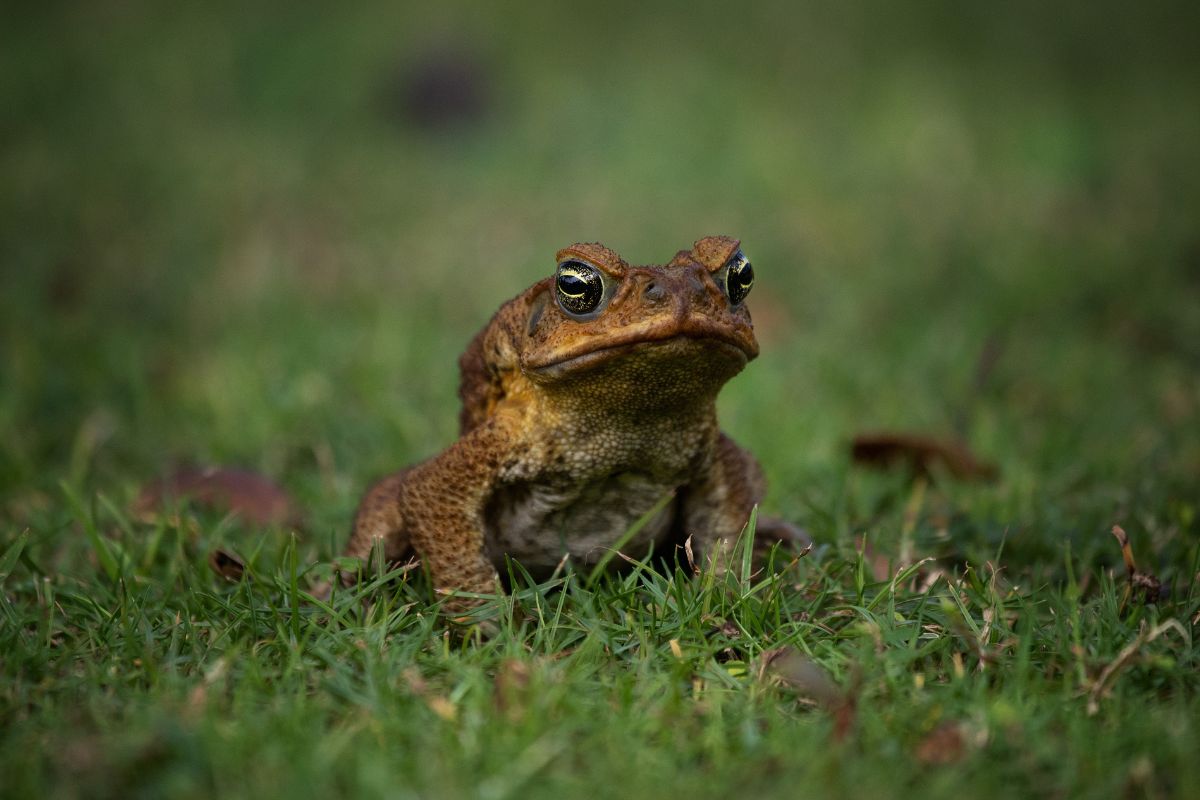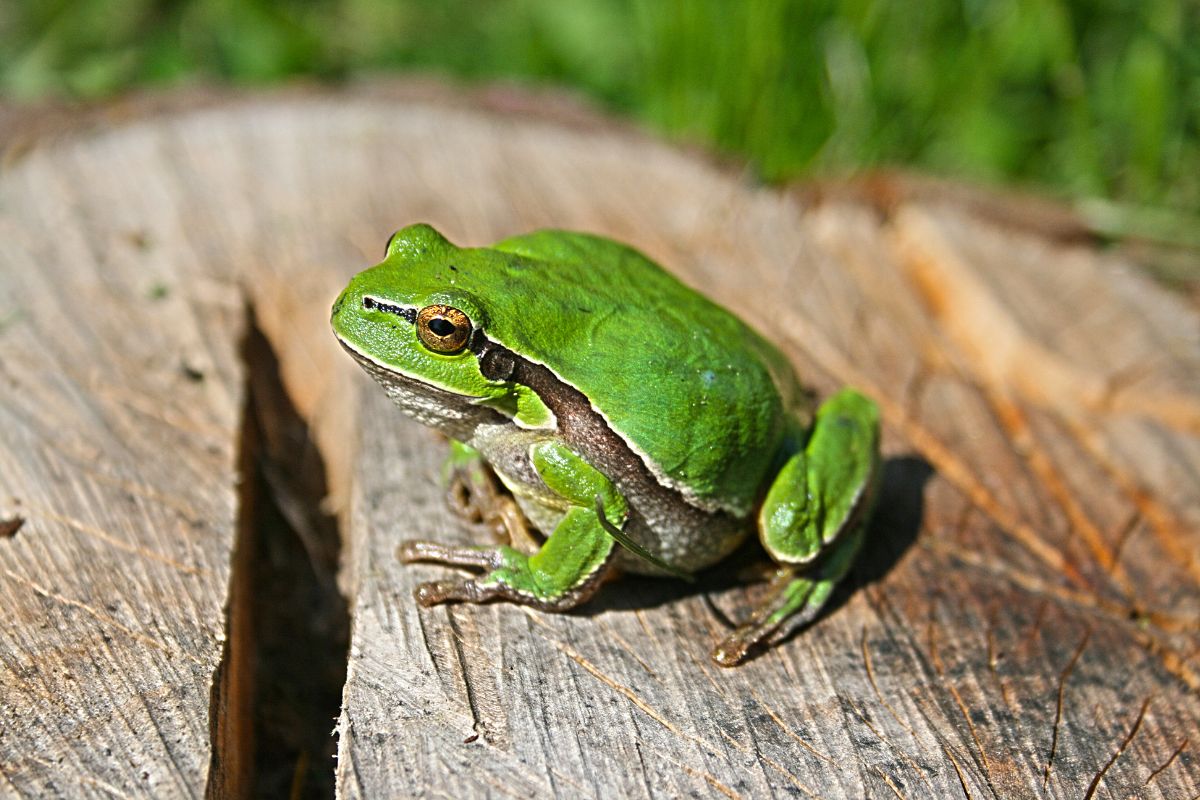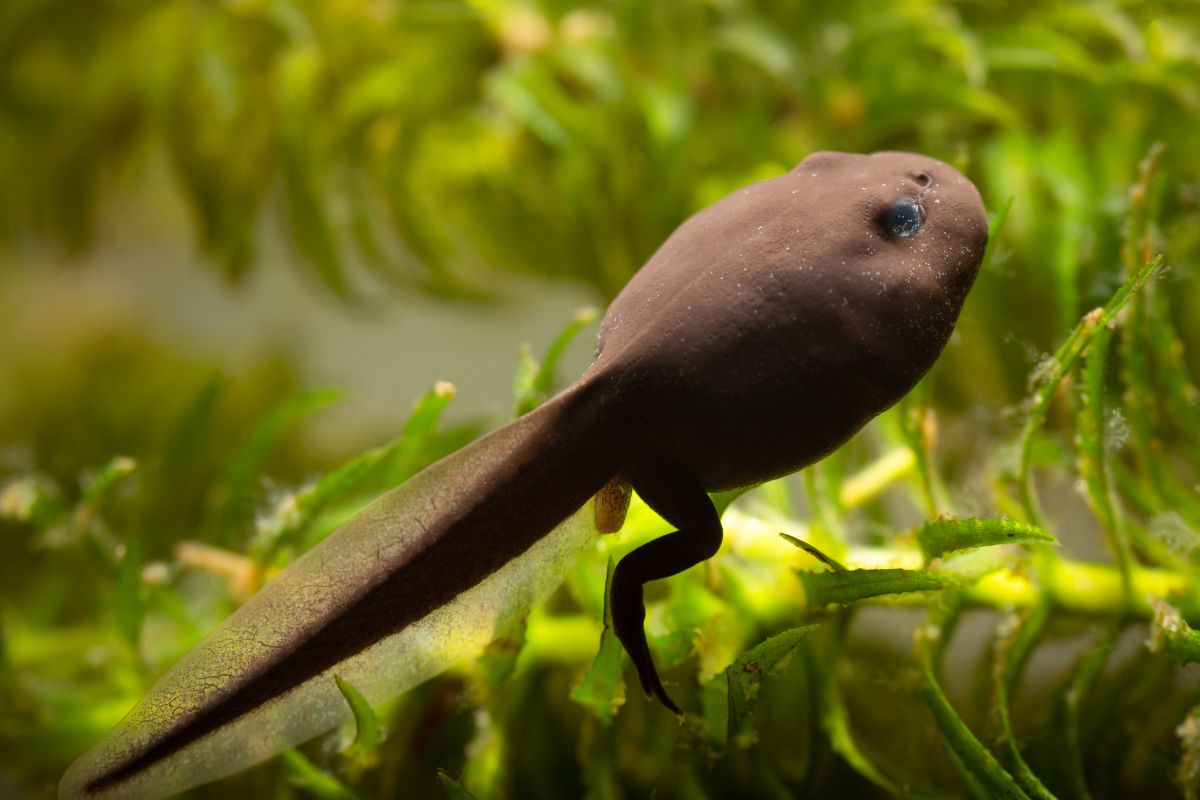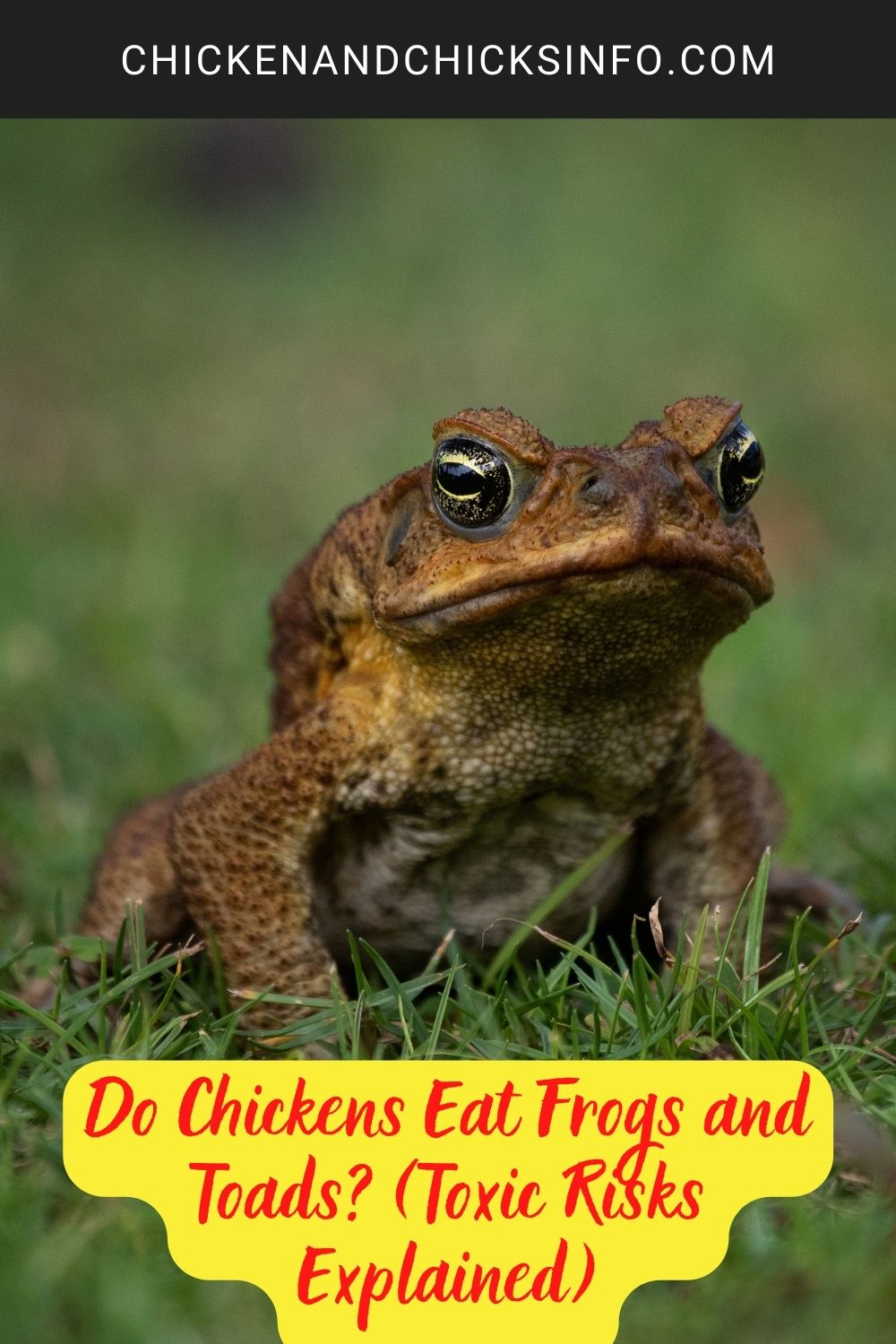
Chickens do and will eat frogs and toads, yes. Chickens are omnivores, they will eat just about any small amphibians, lizards, and insects they can get a hold of. Frogs pose a low health risk. Toads, however, secrete a toxic venom and are more problematic.
Jump to:
Why Do Chickens Eat Frogs and Toads?
Chickens cannot resist chasing, hunting, and eating any form of prey small enough for them to get a hold of and eat. Foraging comes naturally to them, and they’re pretty good at it.
They will eat all kinds of bugs, insects, small rodents, snakes, lizards… and this includes frogs and toads.
I’ve spoken with some backyard chicken owners whose flock regularly find common pond frogs chancing their luck in their yard, and they’ve never had any health issues.
Toads and poisonous frogs are another matter.
I wasn’t able to find anyone who knew their chickens had eaten a toad or a poisonous frog (thankfully). But I don’t need to, there is enough information out there about toads and the toxic venom they produce to know that you don’t want your chickens eating them!
Are Frogs Poisonous To Chickens?

Frog legs are a delicacy in France. In some parts of the world such as South Africa, they even eat entire Bullfrogs.
According to several sources though, eating frogs is potentially very dangerous. Even eating Bullfrogs, as they do in Africa, poses some serious health risks.
A frog’s skin and organs contain harmful toxins. Some species of frogs are more toxic than others, and some frogs are able to produce poison to defend themselves.
They’re not as innocent as they look!
In the U.S. Pickerel frogs are one of the more common species of frogs that are known to be toxic. Coming into contact with one of these can leave you with a tingling sensation and skin irritation.
It’s worth investigating if you have any toxic species of frogs in your area. Especially if you’ve seen your chickens pulling one apart (I know, that’s gross, but it’s what they do).
As a rule of thumb, if there is anything you can do to stop frogs entering your yard, I’d do that. They pose a small health risk, but that’s enough for me.
Are Toads Poisonous To Chickens?
Despite looking very similar, toads are a lot more toxic than frogs. This is because most toads secrete venom from glands in their skin to keep predators at bay.
The most common toad in the U.S. is the giant tropical toad. This toad produces toxins known as bufotoxins.
I couldn’t find any accounts of chickens coming into contact with a giant tropical toad. Cats and dogs commonly try their luck with them though, and they end up in a great deal of discomfort.
Their toxin causes irritation if it comes into contact with their skin. Even worse, if a cat or dog licks a toad they can become very sick.
It’s fair to say that these toxins are also harmful to chickens. Toads are capable of causing anything from irritation if mild contact is made, or in more serious cases can cause seizures and cardiac arrhythmia.
How To Tell Frogs and Toads Apart
If you’ve spotted what you think are frogs, or toads, leaping around your yard and you’re not sure if they’re toads or frogs - there are a few ways you can tell the difference.
The main differences between the two are that frogs tend to have longer legs as they are better at jumping. They also have much smoother skin, are typically more colorful, and spend a lot of time in the water.
Toads actually live on land. They are chunkier in appearance and have thicker, drier skin, with shorter legs. To me, they just look a little more threatening, to be honest.
Do Chickens Eat Tadpoles?

Chickens will eat tadpoles, yes. Tadpoles are a lot safer than frogs and toads and there are no issues with them eating frogspawn or tadpoles if they can get a hold of them.
If you have frogspawn and don’t want your chickens eating it, it should be safe in your pond. Chickens do not like entering water and in my experience will not jump in, even to gobble up some tadpoles.
Some Other Backyard Critters Chickens Eat
Frogs, toads, and other amphibians are not the only backyard creatures chickens love to gobble up. In fact, there are very few living things they’ll leave alone.
Here are some of the most common bugs, insects, and other pests that chickens commonly gobble up:
- Spiders
- Snails and slugs (read about the risks of eating slugs here).
- Ants
- Beetles
- Caterpillars (read more about the risks here).
- Crickets and grasshoppers (awesome nutritional content)
- Ticks
- Grubs
- Wasps and yellow jackets
- …. The list goes on.
As you can see, chickens are opportunistic scavengers and foragers. They love eating bugs, and most are rich in protein and other good nutrition.
In Summary
It’s perfectly normal and natural for chickens to chase and eat live prey. In the wild, the bulk of their diet consists of what they can find for themselves.
I always encourage my hens eat some of the bugs mentioned above as they provide some awesome nutrition (and help keep the number of creepy crawlies under control).
However, I try to discourage them from eating frogs and toads for the reasons covered in this article.
Resources
The world's most dangerous foods - TheTelegraph.co.uk
Bufotoxin - ScienceDirect.com





